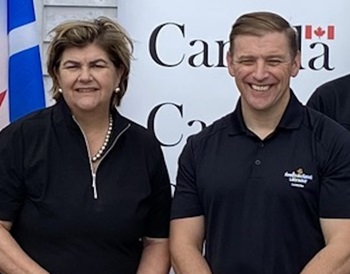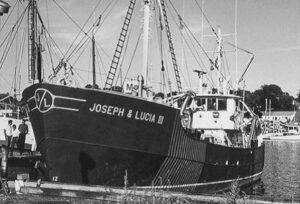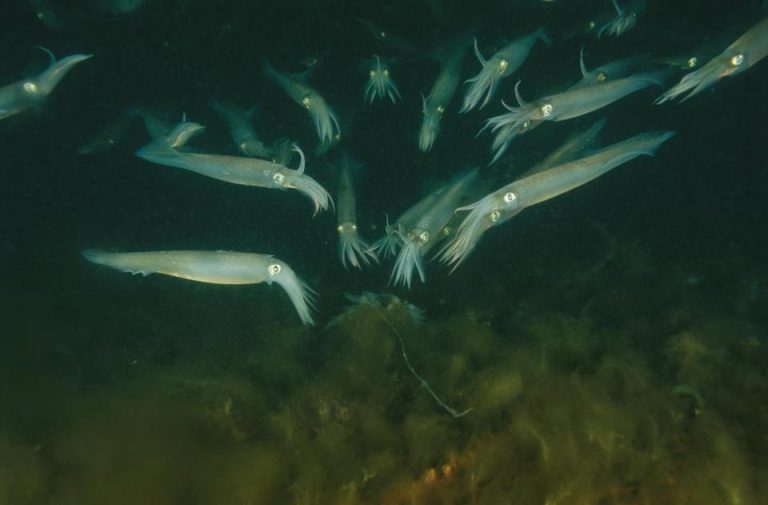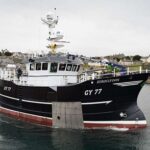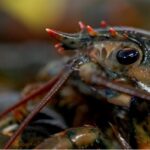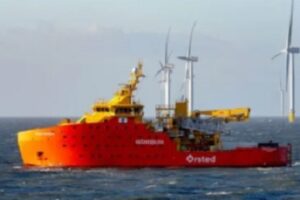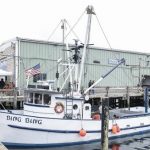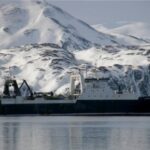Tag Archives: Atlantic Canada
Fight of his life: Well-known NL advocate must travel to Toronto to await lung transplant
 Merv Wiseman is literally fighting a battle for his life, but he still wants it to be about finding a way to help others. The retired Canadian Coast Guard employee has spent his life leading the advocacy charge on several fronts, including issues affecting wild commercial fisheries, the fur industry, search and rescue services and agriculture. Now, the 71-year-old is dealing with worsening symptoms of pulmonary fibrosis, a condition he was diagnosed with several years ago, which has rapidly progressed within the past year. Wiseman, whose mobility these days is hampered by having to constantly be connected to an oxygen tank, is still at his home in North Harbour, Placentia Bay, but is hoping to be in Toronto by the end of March. He has no idea when he will get the double lung transplant, he requires, but needs to be close to Toronto General Hospital for when a matching donor does become available. more, >>CLICK TO READ<< 14:04
Merv Wiseman is literally fighting a battle for his life, but he still wants it to be about finding a way to help others. The retired Canadian Coast Guard employee has spent his life leading the advocacy charge on several fronts, including issues affecting wild commercial fisheries, the fur industry, search and rescue services and agriculture. Now, the 71-year-old is dealing with worsening symptoms of pulmonary fibrosis, a condition he was diagnosed with several years ago, which has rapidly progressed within the past year. Wiseman, whose mobility these days is hampered by having to constantly be connected to an oxygen tank, is still at his home in North Harbour, Placentia Bay, but is hoping to be in Toronto by the end of March. He has no idea when he will get the double lung transplant, he requires, but needs to be close to Toronto General Hospital for when a matching donor does become available. more, >>CLICK TO READ<< 14:04
China slaps 25 per cent tariff on N.S. lobster, throwing seafood industry into turmoil
 Chinese counter tariffs on Canadian seafood will include east coast lobster. Nova Scotian exporters have heard directly from buyers in China that the 25 per cent tariff goes into effect March 20. “For America and China to simultaneously, and for entirely different reasons, target Canadian seafood is incredibly poor luck, and beyond that it is incredibly hard to comprehend,” Stewart Lamont, owner of Tangier Lobster, said on Sunday. Just over 40 per cent of Nova Scotia’s live lobster exports go to China. About 40 per cent of live lobster exports, along with 70 per cent of frozen processed lobster, go to the United States. more, >>CLICK TO READ<< 12:10
Chinese counter tariffs on Canadian seafood will include east coast lobster. Nova Scotian exporters have heard directly from buyers in China that the 25 per cent tariff goes into effect March 20. “For America and China to simultaneously, and for entirely different reasons, target Canadian seafood is incredibly poor luck, and beyond that it is incredibly hard to comprehend,” Stewart Lamont, owner of Tangier Lobster, said on Sunday. Just over 40 per cent of Nova Scotia’s live lobster exports go to China. About 40 per cent of live lobster exports, along with 70 per cent of frozen processed lobster, go to the United States. more, >>CLICK TO READ<< 12:10

The American lobster’s baby bust
The Gulf of Maine is home to one of the most valuable fisheries in the United States. Every year, American lobsters (Homarus americanus) from the gulf fuel a multibillion-dollar industry, buoying fishing communities across New England and across the border into Atlantic Canada. The Gulf of Maine is also heating up faster than almost any other marine environment on Earth. In the gulf, rising water temperatures and shifting currents have already triggered shocking declines in other mainstay catches, such as northern shrimp, and put surprising new species in fish traps. Now, ongoing research led by Joshua Carloni, a marine biologist with the New Hampshire Fish and Game Department, shows a potentially dire situation brewing for the area’s most valuable species—the lobster. more, >>CLICK TO READ<< 08:36
How Atlantic Canada came to rule the slimy, slippery, squirmy big business of baby eels
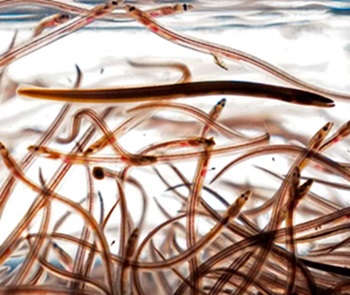 During his lifetime, Philip Holland was known as a dedicated Crown prosecutor who put the bad guys behind bars. But his legacy could very well be the lucrative baby eel industry he started in Canada under the most modest of circumstances, keeping the tiny, squirmy critters he had plucked from cold New Brunswick rivers alive in plastic tubs in his basement before shipping them to Asia. And yet, more than two decades after his death and 36 years since he was granted an experimental licence to capture glass eels, the elver industry in Atlantic Canada has become deliriously successful, worth millions. more, >>CLICK TO READ<< 08:17
During his lifetime, Philip Holland was known as a dedicated Crown prosecutor who put the bad guys behind bars. But his legacy could very well be the lucrative baby eel industry he started in Canada under the most modest of circumstances, keeping the tiny, squirmy critters he had plucked from cold New Brunswick rivers alive in plastic tubs in his basement before shipping them to Asia. And yet, more than two decades after his death and 36 years since he was granted an experimental licence to capture glass eels, the elver industry in Atlantic Canada has become deliriously successful, worth millions. more, >>CLICK TO READ<< 08:17
Snow crab quotas way up for some Cape Bretoners, way down for others
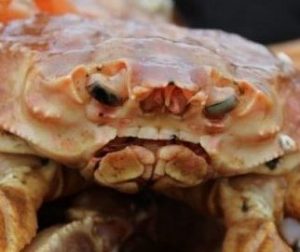 Gulf of St. Lawrence snow crab fishermen are learning who’ll be winners and losers when quotas are divided up for the 2025 season. At a meeting with Fisheries and Oceans Canada (DFO) in Moncton this week, the commercial fishermen in Area 19 (near shore in western Cape Breton) learned they’ll get a 42 per cent quota increase. That’ll offset quota cuts in the past two years that equaled about the same. The much larger Area 12 fishery, which covers the central Gulf of St. Lawrence all the way to New Brunswick, meanwhile, can expect to see an over 20 per cent cut to their quota. Demand for snow crab is high in the United States, where 85 per cent of what’s caught in the southern Gulf goes. Prices were around $4 a pound last year and it was hoped to be higher this season. But U.S. President Donald Trump’s threat of a 25 per cent tariff could hurt everyone’s bottom line. “We’re waiting on Trump, like every industry from forestry to mining,” said MacLean. more, >>CLICK TO READ<< 15:22
Gulf of St. Lawrence snow crab fishermen are learning who’ll be winners and losers when quotas are divided up for the 2025 season. At a meeting with Fisheries and Oceans Canada (DFO) in Moncton this week, the commercial fishermen in Area 19 (near shore in western Cape Breton) learned they’ll get a 42 per cent quota increase. That’ll offset quota cuts in the past two years that equaled about the same. The much larger Area 12 fishery, which covers the central Gulf of St. Lawrence all the way to New Brunswick, meanwhile, can expect to see an over 20 per cent cut to their quota. Demand for snow crab is high in the United States, where 85 per cent of what’s caught in the southern Gulf goes. Prices were around $4 a pound last year and it was hoped to be higher this season. But U.S. President Donald Trump’s threat of a 25 per cent tariff could hurt everyone’s bottom line. “We’re waiting on Trump, like every industry from forestry to mining,” said MacLean. more, >>CLICK TO READ<< 15:22
‘The only winner here is China.’ How DFO invested in and then killed Canadian eel aquaculture
 An aquaculture project that would have seen elvers grown to adulthood in Atlantic Canada rather than China has been thrown into disarray by DFO’s quota reallocation. Despite millions in investment, over a decade of research and the potential to increase profits for all involved ten-fold, federal Fisheries Minister Diane Lebouthillier won’t even respond to NovaEel’s letters. “The undermining of NovaEel means for the foreseeable future, or forever, there will be no domestic capacity to exploit our natural resource, and we will be 100 per cent beholden to foreign entities to realize value,” said Mitchell Feigenbaum, a commercial elver licence holder and investor in NovaEel. “Those entities are not going to invest in eel farms in North America and they have demonstrated the willingness and ability to support the trade of unlawfully caught eels without any hesitation.” more, >>CLICK TO READ<< 11:07
An aquaculture project that would have seen elvers grown to adulthood in Atlantic Canada rather than China has been thrown into disarray by DFO’s quota reallocation. Despite millions in investment, over a decade of research and the potential to increase profits for all involved ten-fold, federal Fisheries Minister Diane Lebouthillier won’t even respond to NovaEel’s letters. “The undermining of NovaEel means for the foreseeable future, or forever, there will be no domestic capacity to exploit our natural resource, and we will be 100 per cent beholden to foreign entities to realize value,” said Mitchell Feigenbaum, a commercial elver licence holder and investor in NovaEel. “Those entities are not going to invest in eel farms in North America and they have demonstrated the willingness and ability to support the trade of unlawfully caught eels without any hesitation.” more, >>CLICK TO READ<< 11:07
Newfoundland towns light up harbours to honour fishers and pray for their safety
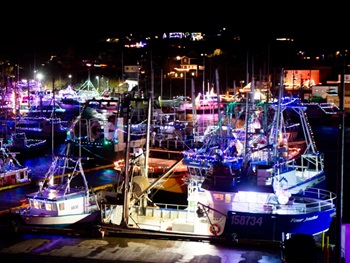 On a twinkling wharf in a small Newfoundland town, a crowd of about 100 people stopped singing and chatting on Friday night to bow their heads in a moment of silence for local fish harvesters. Now in its 26th year, the boat lighting in Port de Grave, N.L., draws visitors from all over the province, but organizers have kept the town’s fishers at the heart of the ceremony. Port de Grave’s event began with a single fisherman, Eric Lear, deciding to light up his boat on Christmas. It has since grown and now requires volunteers to direct cars from out of town into designated parking areas. more, >>CLICK TO READ<< 09:10
On a twinkling wharf in a small Newfoundland town, a crowd of about 100 people stopped singing and chatting on Friday night to bow their heads in a moment of silence for local fish harvesters. Now in its 26th year, the boat lighting in Port de Grave, N.L., draws visitors from all over the province, but organizers have kept the town’s fishers at the heart of the ceremony. Port de Grave’s event began with a single fisherman, Eric Lear, deciding to light up his boat on Christmas. It has since grown and now requires volunteers to direct cars from out of town into designated parking areas. more, >>CLICK TO READ<< 09:10
A lobster season Q&A: Supply and demand, price volatility and challenges in markets
 It’s never smooth sailing for the Atlantic Canada lobster industry. Each year there are issues and challenges to contend with. The weather and catches are beyond anyone’s control. But the one constant is how important this industry is economically to the region, and to the communities that rely on it. Tasked with such things as marketing and advocacy of the industry is the Lobster Council of Canada. In this Q&A, the council’s executive director, Geoff Irvine, talks about the industry, the upcoming lobster season in southwestern Nova Scotia, and the challenges that continue to stack up on the menu. Q: How does the fall opening of the LFA 33 and 34 districts look in comparison to previous seasons? more, >>CLICK TO READ<< 08:28
It’s never smooth sailing for the Atlantic Canada lobster industry. Each year there are issues and challenges to contend with. The weather and catches are beyond anyone’s control. But the one constant is how important this industry is economically to the region, and to the communities that rely on it. Tasked with such things as marketing and advocacy of the industry is the Lobster Council of Canada. In this Q&A, the council’s executive director, Geoff Irvine, talks about the industry, the upcoming lobster season in southwestern Nova Scotia, and the challenges that continue to stack up on the menu. Q: How does the fall opening of the LFA 33 and 34 districts look in comparison to previous seasons? more, >>CLICK TO READ<< 08:28
Maritime lobster harvesters walk out of DFO meeting over illegal fishing concerns
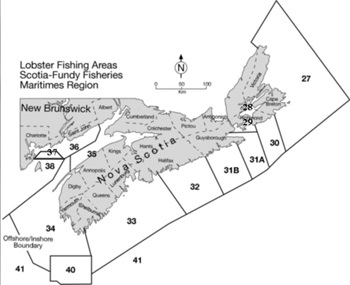 Lobster harvesters from the Maritimes walked out of a meeting with DFO Tuesday after officials allegedly refused to discuss the illegal fishing that has been taking place out of season since August. At the beginning of the meeting, a motion was made by harvester representatives to discuss the issue of ongoing poaching throughout the region. When DFO officials refused to amend the agenda, representatives from Lobster Fishing Areas 27 through 38 walked out, according to a statement from 11 fishing associations representing 3,000 lobster licence holders from across Nova Scotia and New Brunswick. Representatives of lobster harvesters said they would return to the table when DFO is prepared to discuss a plan to end black market, out of season fishing, which they say is an “enormous threat” facing the industry. more, >>CLICK TO READ<< 12:31
Lobster harvesters from the Maritimes walked out of a meeting with DFO Tuesday after officials allegedly refused to discuss the illegal fishing that has been taking place out of season since August. At the beginning of the meeting, a motion was made by harvester representatives to discuss the issue of ongoing poaching throughout the region. When DFO officials refused to amend the agenda, representatives from Lobster Fishing Areas 27 through 38 walked out, according to a statement from 11 fishing associations representing 3,000 lobster licence holders from across Nova Scotia and New Brunswick. Representatives of lobster harvesters said they would return to the table when DFO is prepared to discuss a plan to end black market, out of season fishing, which they say is an “enormous threat” facing the industry. more, >>CLICK TO READ<< 12:31
Lobster fishing industry reps remain concerned about illegal fishing
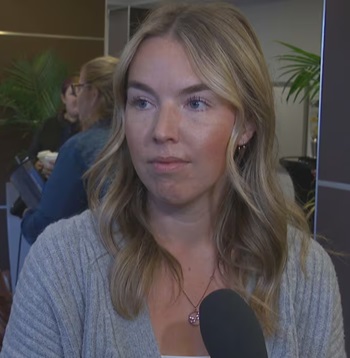 A hastily organized meeting with senior Fisheries Department officials on Tuesday did nothing to quell concerns among commercial lobster industry representatives about illegal fishing and insufficient enforcement along coastal communities. The meeting came together hours after people attending a gathering of the Maritimes Region Lobster Advisory Committee in Dartmouth, N.S., walked out in protest when a motion to change the agenda to deal only with enforcement and illegal fishing was rejected. “It’s the No. 1 industry in Atlantic Canada and we feel abandoned,” Dan Fleck, executive director of the Brazil Rock 33/34 Lobster Association, told reporters after walking out of the morning session. more, >>CLICK TO READ<< 07:26
A hastily organized meeting with senior Fisheries Department officials on Tuesday did nothing to quell concerns among commercial lobster industry representatives about illegal fishing and insufficient enforcement along coastal communities. The meeting came together hours after people attending a gathering of the Maritimes Region Lobster Advisory Committee in Dartmouth, N.S., walked out in protest when a motion to change the agenda to deal only with enforcement and illegal fishing was rejected. “It’s the No. 1 industry in Atlantic Canada and we feel abandoned,” Dan Fleck, executive director of the Brazil Rock 33/34 Lobster Association, told reporters after walking out of the morning session. more, >>CLICK TO READ<< 07:26
Ottawa shirked own guidelines when it reopened commercial cod fishery, say scientists
 Fisheries scientists say the federal government ignored its own guidelines when it hiked cod quotas off the northern and eastern coasts of Newfoundland and Labrador last June. The scientists, some of whom worked for Fisheries and Oceans Canada for decades, say they’re struggling to understand the decision to reopen the commercial Northern cod fishery. “I was baffled when I heard the news”, said Noel Cadigan, a long-time DFO scientist who now works at Memorial University’s Marine Institute. “And that hasn’t changed.” A May 6 briefing note obtained by CBC/Radio-Canada shows DFO recommended against reopening the fishery to offshore vessels and increasing quotas. But it also assured Federal Fisheries Minister Diane Lebouthillier that lifting the moratorium and hiking the total allowable catch, as all six Liberal MPs from Newfoundland and Labrador were pushing her to do, would nevertheless align with the Fisheries Act and its rules on stock management. more, >>CLICK TO READ<< 11:15
Fisheries scientists say the federal government ignored its own guidelines when it hiked cod quotas off the northern and eastern coasts of Newfoundland and Labrador last June. The scientists, some of whom worked for Fisheries and Oceans Canada for decades, say they’re struggling to understand the decision to reopen the commercial Northern cod fishery. “I was baffled when I heard the news”, said Noel Cadigan, a long-time DFO scientist who now works at Memorial University’s Marine Institute. “And that hasn’t changed.” A May 6 briefing note obtained by CBC/Radio-Canada shows DFO recommended against reopening the fishery to offshore vessels and increasing quotas. But it also assured Federal Fisheries Minister Diane Lebouthillier that lifting the moratorium and hiking the total allowable catch, as all six Liberal MPs from Newfoundland and Labrador were pushing her to do, would nevertheless align with the Fisheries Act and its rules on stock management. more, >>CLICK TO READ<< 11:15
Feds fund offshore wind study hoping to boost market in Atlantic Canada
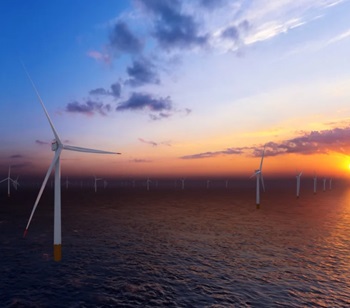 Federal funding for a pioneering offshore wind power grid study in the Canadian Maritimes should help draw big-hitting developers to the region’s first project auction next year. But commercialization of the market remains on the far horizon, says a leading industry analyst. Ottawa earlier this week awarded $6 million to Net Zero Atlantic, a low-carbon research and development hub in Nova Scotia, for the Atlantic Canada Offshore Wind Integration and Transmission Study, which aims to show how future offshore wind farms could export power to the onshore electricity network. While $6 million of the funding to Net Zero Atlantic will go toward the grid study, a further $3.25 million will be dedicated to technologies associated with fishing vessels and ferry fleets, agriculture, carbon capture, hydrogen and energy storage. more, >>CLICK TO READ<< 07:38
Federal funding for a pioneering offshore wind power grid study in the Canadian Maritimes should help draw big-hitting developers to the region’s first project auction next year. But commercialization of the market remains on the far horizon, says a leading industry analyst. Ottawa earlier this week awarded $6 million to Net Zero Atlantic, a low-carbon research and development hub in Nova Scotia, for the Atlantic Canada Offshore Wind Integration and Transmission Study, which aims to show how future offshore wind farms could export power to the onshore electricity network. While $6 million of the funding to Net Zero Atlantic will go toward the grid study, a further $3.25 million will be dedicated to technologies associated with fishing vessels and ferry fleets, agriculture, carbon capture, hydrogen and energy storage. more, >>CLICK TO READ<< 07:38
N.S. Liberals call for new task force to improve enforcement of lobster fishery
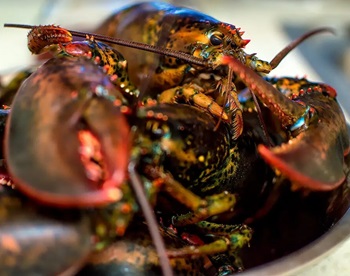 As top fishery officials from around the country arrive in PEI for the Canadian Council of Fisheries and Aquaculture Ministers meeting Nova Scotia’s Liberals are calling for a solution to the ongoing disputes over lobster fishing. Particularly in southwest Nova Scotia tensions have been running high with indigenous lobster fishermen and commercial operators. The Indigenous fishers have a right to a moderate livelihood fishery which was upheld by the Supreme Court. While commercial fishers argue that they need to still observe fishing seasons for the overall health of the lobster fishery. At times the altercations have become violent, which the Liberals say will only continue if things go unchanged. more, >>CLICK TO READ<< 07:42
As top fishery officials from around the country arrive in PEI for the Canadian Council of Fisheries and Aquaculture Ministers meeting Nova Scotia’s Liberals are calling for a solution to the ongoing disputes over lobster fishing. Particularly in southwest Nova Scotia tensions have been running high with indigenous lobster fishermen and commercial operators. The Indigenous fishers have a right to a moderate livelihood fishery which was upheld by the Supreme Court. While commercial fishers argue that they need to still observe fishing seasons for the overall health of the lobster fishery. At times the altercations have become violent, which the Liberals say will only continue if things go unchanged. more, >>CLICK TO READ<< 07:42
Commercial fishers demand stricter enforcement and penalties for illegal lobster sales – Federal and provincial governments need to step-up enforcement
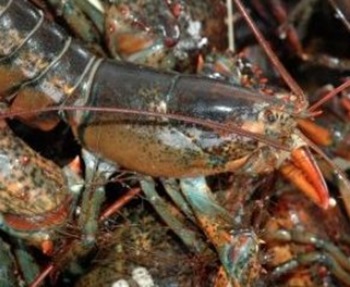 Uncertainty on the future of the commercial fishery will potentially put the sustainability of the lobster catch and jobs at risk according to the leaders of the Coalition of Atlantic and Quebec Fishing Organizations and the Unified Fisheries Conservation Alliance (UFCA). The upcoming meeting of fisheries ministers from across Canada is a unique opportunity to make sure the commercial fishery remains sustainable. Action is needed from both federal and provincial officials. For the Government of Canada, keeping independent enforcement officers on the water is critical to making sure no one fishes out of season. “Enforcing one set of rules for everyone is the key to a strong fishery. Impartial, independent enforcement officers at Department of Fisheries and Oceans is at the heart of a sustainable fishery,” according to Gordon Beaton, president of the Gulf Nova Scotia Fleet Planning Board. “We are concerned about potential changes to enforcement, we need more, not less, independent enforcement of the rules.” Science, not politics, should be driving decisions on the fishery. more, >>CLICK TO READ<< 17:40
Uncertainty on the future of the commercial fishery will potentially put the sustainability of the lobster catch and jobs at risk according to the leaders of the Coalition of Atlantic and Quebec Fishing Organizations and the Unified Fisheries Conservation Alliance (UFCA). The upcoming meeting of fisheries ministers from across Canada is a unique opportunity to make sure the commercial fishery remains sustainable. Action is needed from both federal and provincial officials. For the Government of Canada, keeping independent enforcement officers on the water is critical to making sure no one fishes out of season. “Enforcing one set of rules for everyone is the key to a strong fishery. Impartial, independent enforcement officers at Department of Fisheries and Oceans is at the heart of a sustainable fishery,” according to Gordon Beaton, president of the Gulf Nova Scotia Fleet Planning Board. “We are concerned about potential changes to enforcement, we need more, not less, independent enforcement of the rules.” Science, not politics, should be driving decisions on the fishery. more, >>CLICK TO READ<< 17:40
DFO drops investigations into alleged controlling agreements; inshore fisheries advocate calls for independent inquiry to find out why
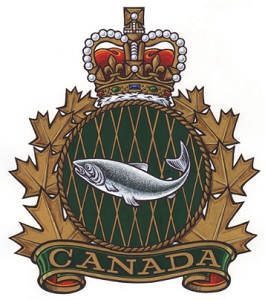 The federal Department of Fisheries and Oceans (DFO) has shut down three separate investigations in this province into alleged illegal controlling agreements that give processing companies control over inshore boats and quotas — including one case that included a harvester’s confession— with no charges laid. DFO officials have yet to say why the cases were closed last week, and whether controlling agreements remain illegal as a means to prevent the corporate takeover of inshore fisheries in Atlantic Canada and Quebec. DFO officials have yet to say why the cases were closed last week, and whether controlling agreements remain illegal as a means to prevent the corporate takeover of inshore fisheries in Atlantic Canada and Quebec. In a July 4th letter to Foss, Paul Didham with DFO’s Conservation and Protection division confirmed the department has decided “not to proceed in this matter.” “Therefore, please be advised that this investigation is now concluded, and no charges pursued.” more, >>CLICK TO READ<< 19:11
The federal Department of Fisheries and Oceans (DFO) has shut down three separate investigations in this province into alleged illegal controlling agreements that give processing companies control over inshore boats and quotas — including one case that included a harvester’s confession— with no charges laid. DFO officials have yet to say why the cases were closed last week, and whether controlling agreements remain illegal as a means to prevent the corporate takeover of inshore fisheries in Atlantic Canada and Quebec. DFO officials have yet to say why the cases were closed last week, and whether controlling agreements remain illegal as a means to prevent the corporate takeover of inshore fisheries in Atlantic Canada and Quebec. In a July 4th letter to Foss, Paul Didham with DFO’s Conservation and Protection division confirmed the department has decided “not to proceed in this matter.” “Therefore, please be advised that this investigation is now concluded, and no charges pursued.” more, >>CLICK TO READ<< 19:11
Canadian Independent Redfish Harvesters Trash Minister’s Harvest Plan: Disconnect Has Never Been More Evident
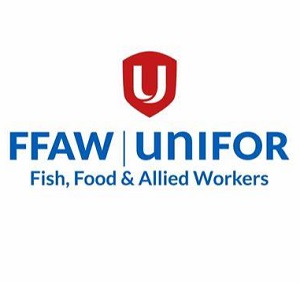 Following the announcement of the Unit 1 Redfish Management Plan and a follow-up to the Redfish Advisory Committee on Wednesday, the 3Pn4R Advisory Committee convened on Thursday night to review the proceedings. The consensus was unanimous in support of a resolution from FFAW President Greg Pretty: “Shred the document and appoint a recovery team including industry experts to ensure we have a plan that can work.” Earlier this spring, the original announcement made by Minister Lebouthillier gave away nearly 60% of the Canadian redfish quota to the corporate fleet, despite the inshore, owner-operator fleet having taken the lead on science and sustainability measures in recent years. New measures announced this week further limit harvesters by implementing unreasonable seasons, depths, gear, observer coverage, and by-catch rules. The restrictions effectively limit owner-operator participation from the inshore fleet. more, >>CLICK TO READ<< 10:11
Following the announcement of the Unit 1 Redfish Management Plan and a follow-up to the Redfish Advisory Committee on Wednesday, the 3Pn4R Advisory Committee convened on Thursday night to review the proceedings. The consensus was unanimous in support of a resolution from FFAW President Greg Pretty: “Shred the document and appoint a recovery team including industry experts to ensure we have a plan that can work.” Earlier this spring, the original announcement made by Minister Lebouthillier gave away nearly 60% of the Canadian redfish quota to the corporate fleet, despite the inshore, owner-operator fleet having taken the lead on science and sustainability measures in recent years. New measures announced this week further limit harvesters by implementing unreasonable seasons, depths, gear, observer coverage, and by-catch rules. The restrictions effectively limit owner-operator participation from the inshore fleet. more, >>CLICK TO READ<< 10:11
Herring stock struggles continue
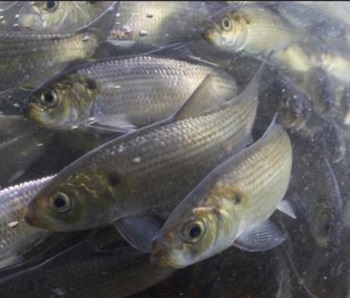 Herring stocks in the south of the Gulf of St. Lawrence continues to struggle as the federal moratorium on spring herring fishing passes the two-year mark. Herring in Atlantic Canada is split into two stocks, corresponding with the breeding cycles of the fish. While spring herring stocks protected by the moratorium continue to struggle, fall herring can be fished sustainably and are not under a moratorium. Herring is an ideal species for bait and is a favourite for crustacean fishers. With spring herring stocks under moratorium, fishers in Atlantic Canada are forced to turn to alternative fish stocks. Mark Prevost, one of three co-owners of the alternative bait company Bait Masters, feels strongly about sustainability and shared concerns with SaltWire about the future of other fish stocks taking the brunt of the herring stock closure. more, >>CLICK TO READ<< 12:23
Herring stocks in the south of the Gulf of St. Lawrence continues to struggle as the federal moratorium on spring herring fishing passes the two-year mark. Herring in Atlantic Canada is split into two stocks, corresponding with the breeding cycles of the fish. While spring herring stocks protected by the moratorium continue to struggle, fall herring can be fished sustainably and are not under a moratorium. Herring is an ideal species for bait and is a favourite for crustacean fishers. With spring herring stocks under moratorium, fishers in Atlantic Canada are forced to turn to alternative fish stocks. Mark Prevost, one of three co-owners of the alternative bait company Bait Masters, feels strongly about sustainability and shared concerns with SaltWire about the future of other fish stocks taking the brunt of the herring stock closure. more, >>CLICK TO READ<< 12:23
NL Harvesters Say Thanks For Nothing, Bait Fishery Slap in the Face to License Holders
 This morning, the federal government announced a bait fishery for Atlantic mackerel in Atlantic Canada and Quebec. A bait fishery for mackerel will do nothing for harvesters in Newfoundland and Labrador, and harvesters are demanding a modest directed commercial quota for the province. “Newfoundland and Labrador has a history of a fully monitored directed fishery that provided top quality product in a traditionally fall fishery. FFAW-Unifor’s proposal for a directed fishery with temporal coverage would bridge the existing information gaps,” says FFAW-Unifor Secretary-Treasurer Jason Spingle. “Moreover, today’s release is not clear what portion Newfoundland and Labrador harvesters would receive and when,” Spingle says. more, >>CLICK TO READ<< 13:36
This morning, the federal government announced a bait fishery for Atlantic mackerel in Atlantic Canada and Quebec. A bait fishery for mackerel will do nothing for harvesters in Newfoundland and Labrador, and harvesters are demanding a modest directed commercial quota for the province. “Newfoundland and Labrador has a history of a fully monitored directed fishery that provided top quality product in a traditionally fall fishery. FFAW-Unifor’s proposal for a directed fishery with temporal coverage would bridge the existing information gaps,” says FFAW-Unifor Secretary-Treasurer Jason Spingle. “Moreover, today’s release is not clear what portion Newfoundland and Labrador harvesters would receive and when,” Spingle says. more, >>CLICK TO READ<< 13:36
Lobster harvesters in Atlantic Canada to vote on increasing minimum legal size this year
 At stake is maintaining access to the United States market. “It will be an individual vote. That’s a big decision that every single enterprise and owner has to look at from their own business,” said Heather Mulock, executive director of the Coldwater Lobster Association, which represents fishermen in lobster fishing area 34 (LFA 34). In late May or June, the 979 licence holders in the area will be asked to vote on whether to match increases in allowable U.S. catch measurements that will come into effect Jan. 1, 2025, and again in 2027. Live Canadian lobster that fall under the new limits would not be allowed into the U.S. That includes bonded shipments of lobster under the new minimum in the U.S., according to an information package sent to fishermen in southwestern Nova Scotia. That could block trucking of “undersized” Canadian lobster across the border for flights to Asia from airports in Boston or New York. more, >>click to read<< 08: 57
At stake is maintaining access to the United States market. “It will be an individual vote. That’s a big decision that every single enterprise and owner has to look at from their own business,” said Heather Mulock, executive director of the Coldwater Lobster Association, which represents fishermen in lobster fishing area 34 (LFA 34). In late May or June, the 979 licence holders in the area will be asked to vote on whether to match increases in allowable U.S. catch measurements that will come into effect Jan. 1, 2025, and again in 2027. Live Canadian lobster that fall under the new limits would not be allowed into the U.S. That includes bonded shipments of lobster under the new minimum in the U.S., according to an information package sent to fishermen in southwestern Nova Scotia. That could block trucking of “undersized” Canadian lobster across the border for flights to Asia from airports in Boston or New York. more, >>click to read<< 08: 57
Putting the Cart Before the Redfish
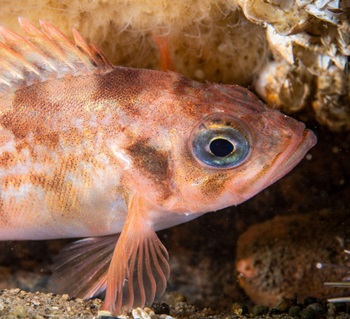 This was supposed to be a good-news story. In Atlantic Canada’s Gulf of St. Lawrence, redfish have returned from the brink. Nearly 30 years after the fishery was closed, redfish populations have rebounded. Fishers, who have suffered through years of fisheries closures and widespread stock declines, have been eagerly eyeing the reemergence of the resource. But in early 2024, when Canadian fisheries minister Diane Lebouthillier declared that the redfish fishery would reopen later this year, keen observers received the announcement with apprehension. And now, as the reopening draws near—the tentative start date is June 15—conservationists and fishers say that climate change, shifts in the Gulf of St. Lawrence ecosystem, and unfavorable market conditions mean the fishery is unlikely to be the boon many are anticipating. This change of perspective hinges, in part, on research by scientists with Fisheries and Oceans Canada (DFO) that shows redfish have stopped growing. more, >>click to read<< 12:38
This was supposed to be a good-news story. In Atlantic Canada’s Gulf of St. Lawrence, redfish have returned from the brink. Nearly 30 years after the fishery was closed, redfish populations have rebounded. Fishers, who have suffered through years of fisheries closures and widespread stock declines, have been eagerly eyeing the reemergence of the resource. But in early 2024, when Canadian fisheries minister Diane Lebouthillier declared that the redfish fishery would reopen later this year, keen observers received the announcement with apprehension. And now, as the reopening draws near—the tentative start date is June 15—conservationists and fishers say that climate change, shifts in the Gulf of St. Lawrence ecosystem, and unfavorable market conditions mean the fishery is unlikely to be the boon many are anticipating. This change of perspective hinges, in part, on research by scientists with Fisheries and Oceans Canada (DFO) that shows redfish have stopped growing. more, >>click to read<< 12:38
No signs of herring stocks rebounding 2 years into moratorium, DFO says
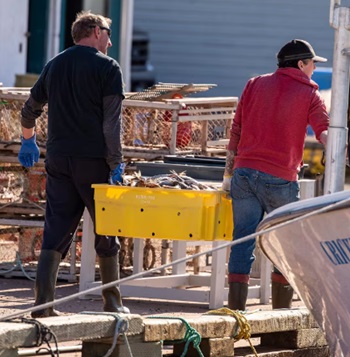 Two years into a moratorium on the East Coast’s spring herring fishery, biologists say the stock isn’t improving. Fisheries and Oceans Canada put a moratorium on fishing for herring in the Gulf of St. Lawrence, and on the mackerel fishery in Atlantic Canada and Quebec, on March 30, 2022. At the time, the department said urgent action had to be taken to give the stocks a chance to recover and to ensure the long-term sustainability and prosperity of East Coast fisheries. DFO biologist Laurie Maynard said that over the last two years of evaluation, the herring stock has plateaued at around 30,000 tonnes, but isn’t showing signs of growth. more, >>click to read<< 14:58
Two years into a moratorium on the East Coast’s spring herring fishery, biologists say the stock isn’t improving. Fisheries and Oceans Canada put a moratorium on fishing for herring in the Gulf of St. Lawrence, and on the mackerel fishery in Atlantic Canada and Quebec, on March 30, 2022. At the time, the department said urgent action had to be taken to give the stocks a chance to recover and to ensure the long-term sustainability and prosperity of East Coast fisheries. DFO biologist Laurie Maynard said that over the last two years of evaluation, the herring stock has plateaued at around 30,000 tonnes, but isn’t showing signs of growth. more, >>click to read<< 14:58
Closure of Eastern Seafood | The end for Matane shrimp?
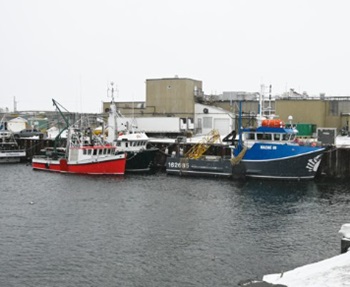 A few days before the start of the fishing season, the oldest shrimp processing plant in Quebec closes its doors. The Danish company Royal Greenland announced on Monday that it was closing down the Eastern Seafood processing plant. The mayor of Matane, Eddy Métivier, speaks of “a total surprise” as the Danish company had recently invested millions to add lobster and crab processing to its activities, in addition to building 71 housing units for its temporary workers. “We are in shock, it’s really a hard blow,” he said in an interview. It is a symbol for Matane. It’s like putting an end to historical fishing traditions. In this sense, too, it is a mourning. more, >>clicck to read<< 14:29
A few days before the start of the fishing season, the oldest shrimp processing plant in Quebec closes its doors. The Danish company Royal Greenland announced on Monday that it was closing down the Eastern Seafood processing plant. The mayor of Matane, Eddy Métivier, speaks of “a total surprise” as the Danish company had recently invested millions to add lobster and crab processing to its activities, in addition to building 71 housing units for its temporary workers. “We are in shock, it’s really a hard blow,” he said in an interview. It is a symbol for Matane. It’s like putting an end to historical fishing traditions. In this sense, too, it is a mourning. more, >>clicck to read<< 14:29
Gulf of St. Lawrence redfish population in decline even before fishery reopens, report finds
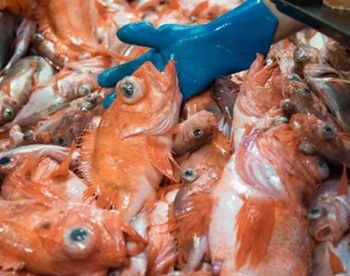 The latest scientific assessment of the redfish population in the Gulf of St. Lawrence has sobering news even as fishing groups in Atlantic Canada and Quebec fight over who will get to catch it: their numbers are rapidly shrinking. “I think we’re at the point that we’re clearly seeing that there’s a limit to this boom,” says federal scientist Caroline Senay, the redfish specialist at the Department of Fisheries and Oceans (DFO). The report comes in advance of DFO’s plan to reopen the fishery later this year after it collapsed in the early 1990s and has been closed since 1995. more, >>click to read<< 09:20
The latest scientific assessment of the redfish population in the Gulf of St. Lawrence has sobering news even as fishing groups in Atlantic Canada and Quebec fight over who will get to catch it: their numbers are rapidly shrinking. “I think we’re at the point that we’re clearly seeing that there’s a limit to this boom,” says federal scientist Caroline Senay, the redfish specialist at the Department of Fisheries and Oceans (DFO). The report comes in advance of DFO’s plan to reopen the fishery later this year after it collapsed in the early 1990s and has been closed since 1995. more, >>click to read<< 09:20
Atlantic Groundfish Council Pleased With Redfish Allocation
 The shrimp biomass is declining significantly, and FFAW Secretary-Treasurer Jason Spingle fully expected DFO to give shrimpers access to a meaningful allocation of redfish. The year-round harvesters are generally pleased with the amount of redfish allocated to them. For the first time in decades, Ottawa is opening the redfish fishery in the Gulf of St. Lawrence. The Atlantic Groundfish Council says their sector lost 20 per cent of their historical share in the decision. Generally though, they praise DFO for resisting more drastic change in the total allowable catch. more, >>click to read<< 10:01
The shrimp biomass is declining significantly, and FFAW Secretary-Treasurer Jason Spingle fully expected DFO to give shrimpers access to a meaningful allocation of redfish. The year-round harvesters are generally pleased with the amount of redfish allocated to them. For the first time in decades, Ottawa is opening the redfish fishery in the Gulf of St. Lawrence. The Atlantic Groundfish Council says their sector lost 20 per cent of their historical share in the decision. Generally though, they praise DFO for resisting more drastic change in the total allowable catch. more, >>click to read<< 10:01
Group for Atlantic offshore redfish fleet says details scarce on fishery reopening
 The organization representing Atlantic Canada’s offshore redfish fleet says it needs more details to better understand the ramifications of Ottawa’s lifting of a decades-long moratorium on the fishery. Fisheries Minister Diane Lebouthillier announced Friday that the moratorium put in place in 1995 would end this year, with an initial overall catch quota of at least 25,000 tonnes for the Gulf of St. Lawrence. Sylvie Lapointe, president of the Atlantic Groundfish Council, says the offshore fleet is facing a steep cut in its share of the fishery after being assigned 59 per cent of the 2024 quota. how the fishery will be managed. more, >>click to read<< 14:12
The organization representing Atlantic Canada’s offshore redfish fleet says it needs more details to better understand the ramifications of Ottawa’s lifting of a decades-long moratorium on the fishery. Fisheries Minister Diane Lebouthillier announced Friday that the moratorium put in place in 1995 would end this year, with an initial overall catch quota of at least 25,000 tonnes for the Gulf of St. Lawrence. Sylvie Lapointe, president of the Atlantic Groundfish Council, says the offshore fleet is facing a steep cut in its share of the fishery after being assigned 59 per cent of the 2024 quota. how the fishery will be managed. more, >>click to read<< 14:12
Hundreds of jobs, industry stability at stake in pending Atlantic Canada fishery decision
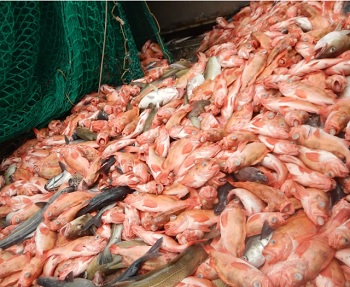 The Trudeau government is poised to allocate fishing access to the massive redfish population in the Gulf of St. Lawrence at the end of the month, a highly anticipated decision generating both dread and hope throughout the industry in Quebec and Atlantic Canada. Nova Scotia, which has the most to lose, is warning Ottawa that “hundreds of jobs” are at stake if it loses its long-standing share of the fishery. Now that the redfish population is estimated to weigh in at a whopping four million metric tonnes, Scotia Harvest and the other Nova Scotia operators are looking nervously at other provinces lobbying for access. Quebec and Newfoundland and Labrador interests, to take one example, are lobbying for a piece of the action to compensate for a drastic reduction in shrimp quota for fleets in their province. more, >>click to read<< 09:06
The Trudeau government is poised to allocate fishing access to the massive redfish population in the Gulf of St. Lawrence at the end of the month, a highly anticipated decision generating both dread and hope throughout the industry in Quebec and Atlantic Canada. Nova Scotia, which has the most to lose, is warning Ottawa that “hundreds of jobs” are at stake if it loses its long-standing share of the fishery. Now that the redfish population is estimated to weigh in at a whopping four million metric tonnes, Scotia Harvest and the other Nova Scotia operators are looking nervously at other provinces lobbying for access. Quebec and Newfoundland and Labrador interests, to take one example, are lobbying for a piece of the action to compensate for a drastic reduction in shrimp quota for fleets in their province. more, >>click to read<< 09:06
‘It lives’: The story of Gaultois, a rural Newfoundland community in limbo
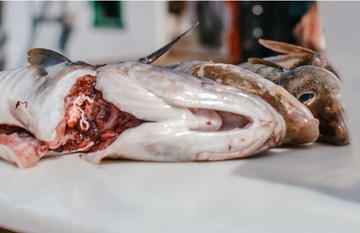 When Atlantic Canada’s cod fishery collapsed, it took a number of small towns with it. Gaultois, an isolated community on Newfoundland’s rugged south coast, hung on for decades after the fish vanished and the town’s fish plant closed in 1990. But with fish no longer to be had, the town’s population plummeted from 600 in the late 1980s to fewer than 100. With numbers that low, residents were faced with the question of whether the town was still viable and in July 2022, opted to hold a resettlement vote. Resettlement votes happen often in Newfoundland and Labrador. Small outport communities vote on whether to stay in their rural homes or if they should move to bigger towns with financial assistance from the provincial government. >>click to read<< 10:35
When Atlantic Canada’s cod fishery collapsed, it took a number of small towns with it. Gaultois, an isolated community on Newfoundland’s rugged south coast, hung on for decades after the fish vanished and the town’s fish plant closed in 1990. But with fish no longer to be had, the town’s population plummeted from 600 in the late 1980s to fewer than 100. With numbers that low, residents were faced with the question of whether the town was still viable and in July 2022, opted to hold a resettlement vote. Resettlement votes happen often in Newfoundland and Labrador. Small outport communities vote on whether to stay in their rural homes or if they should move to bigger towns with financial assistance from the provincial government. >>click to read<< 10:35
The Legal Fishery Sparking Arrests and Violence
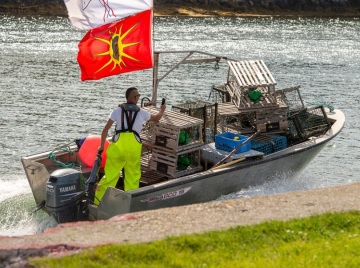 Atlantic Canada is home to the country’s most lucrative fisheries, including lobster—with an export value of CAN $3.2-billion in 2021—and young American eels, or elvers, which can sell for $5,000 per kilogram. But in 1999, the Supreme Court decision changed who could take a slice of this profitable pie. The court ruled in the case of Donald Marshall Jr. from Membertou First Nation in Nova Scotia. Marshall had been arrested in 1993 for catching and selling adult eels without a license and for harvesting outside the commercial fishing season. When the Supreme Court acquitted Marshall, six years later, the decision hinged on his treaty rights as an Indigenous person. Beyond acquitting him, the ruling—known as the Marshall decision—legally affirmed the rights of individuals belonging to 35 Mi’kmaq, Wolastoqey, and Peskotomuhkati First Nations to earn a living by fishing. Photos, >>click to read<< 10:31
Atlantic Canada is home to the country’s most lucrative fisheries, including lobster—with an export value of CAN $3.2-billion in 2021—and young American eels, or elvers, which can sell for $5,000 per kilogram. But in 1999, the Supreme Court decision changed who could take a slice of this profitable pie. The court ruled in the case of Donald Marshall Jr. from Membertou First Nation in Nova Scotia. Marshall had been arrested in 1993 for catching and selling adult eels without a license and for harvesting outside the commercial fishing season. When the Supreme Court acquitted Marshall, six years later, the decision hinged on his treaty rights as an Indigenous person. Beyond acquitting him, the ruling—known as the Marshall decision—legally affirmed the rights of individuals belonging to 35 Mi’kmaq, Wolastoqey, and Peskotomuhkati First Nations to earn a living by fishing. Photos, >>click to read<< 10:31
Too Many Seals – Canada’s Pinniped Population Problem
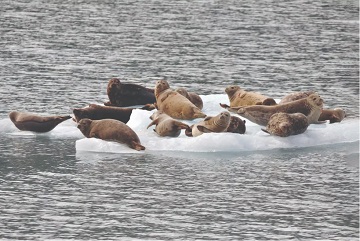 Seals in Atlantic Canada eat a lot of fish every day and there is a great deal of them, coming in at nearly 12 million animals. Their voracious appetite, according to experts, is damaging both the commercial fishery and fish stocks. Bob Hardy has spent a good portion of his life dealing with seals in one way or another. Growing up in Battle Harbour, Labrador, Hardy spent some time taking part in the inshore cod and salmon fisheries. After graduating from university, he spent nine years as a researcher before entering the seafood industry wherein he developed the first seal oil capsule that was commercially available in Newfoundland and Labrador. In 2007, he founded Hardy Fish Co., a fisheries consultancy company, where he took part in projects that researched seal oil, meat and by-product utilization. He has also spent time as a member of the Atlantic Seal Science Task Team. Hardy has since drafted a document entitled, Seals Eat Fish, highlighting the impact the large seal population has on fish stocks and the fishery itself. >click to read< 18:56
Seals in Atlantic Canada eat a lot of fish every day and there is a great deal of them, coming in at nearly 12 million animals. Their voracious appetite, according to experts, is damaging both the commercial fishery and fish stocks. Bob Hardy has spent a good portion of his life dealing with seals in one way or another. Growing up in Battle Harbour, Labrador, Hardy spent some time taking part in the inshore cod and salmon fisheries. After graduating from university, he spent nine years as a researcher before entering the seafood industry wherein he developed the first seal oil capsule that was commercially available in Newfoundland and Labrador. In 2007, he founded Hardy Fish Co., a fisheries consultancy company, where he took part in projects that researched seal oil, meat and by-product utilization. He has also spent time as a member of the Atlantic Seal Science Task Team. Hardy has since drafted a document entitled, Seals Eat Fish, highlighting the impact the large seal population has on fish stocks and the fishery itself. >click to read< 18:56






